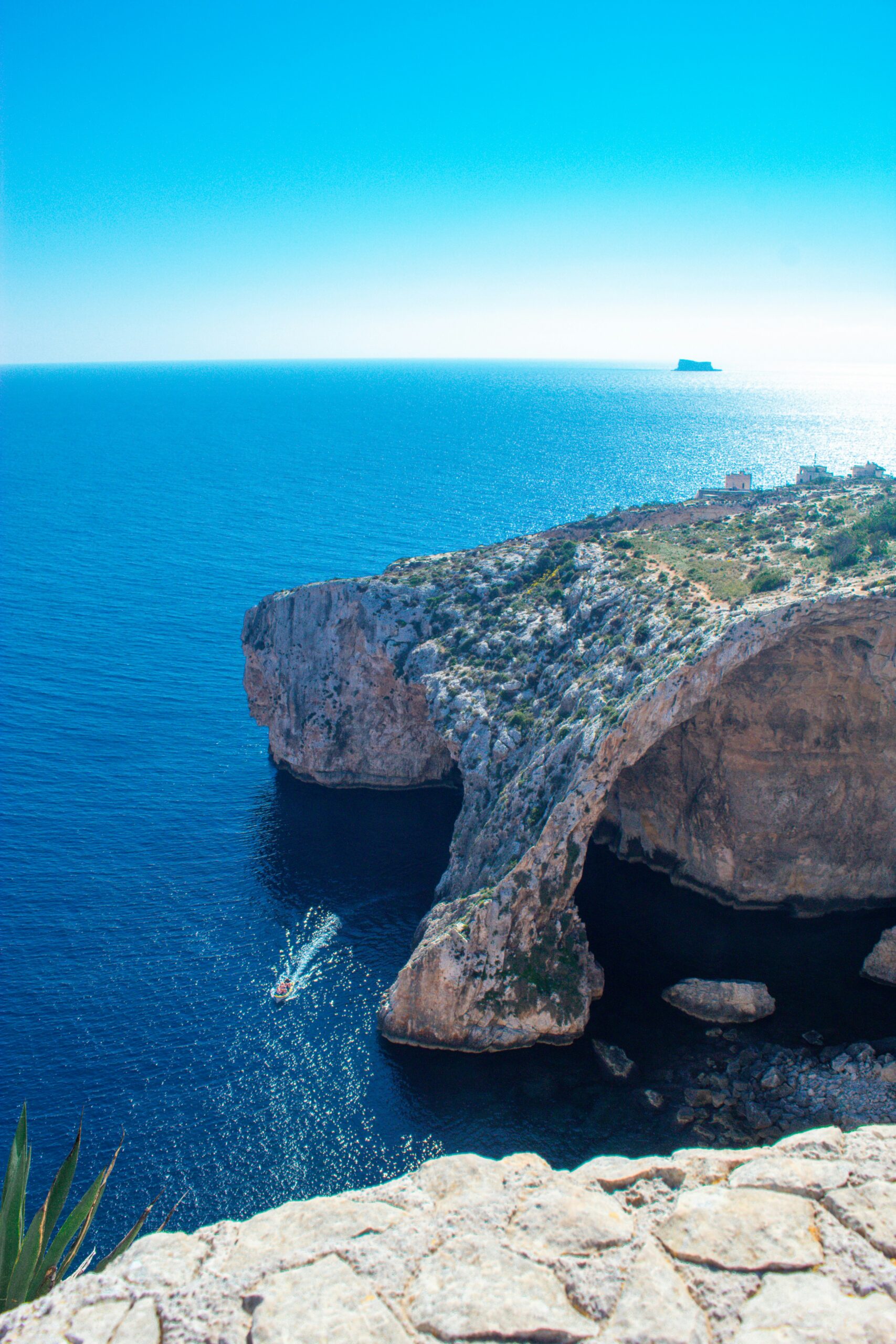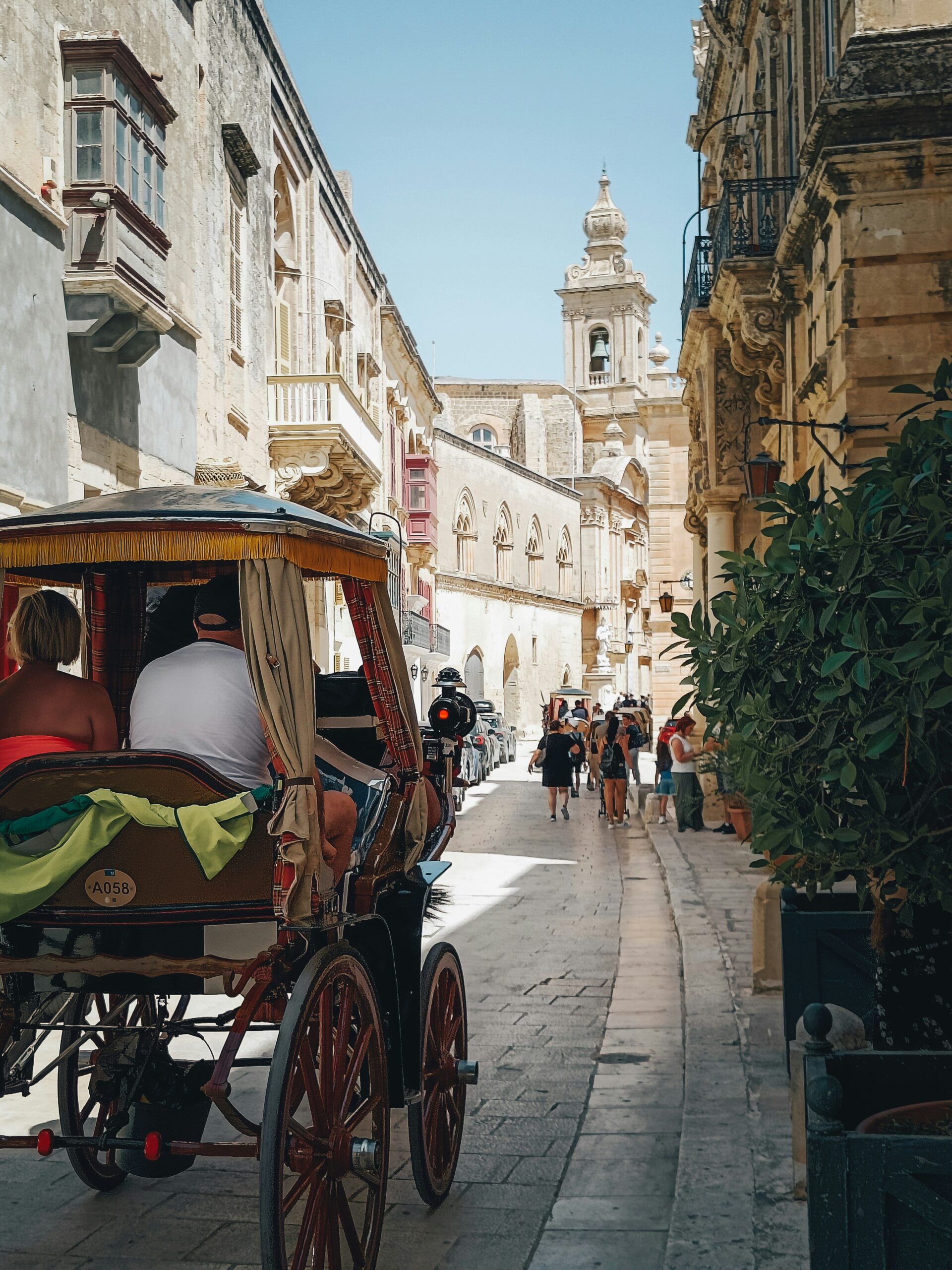In this article we’ll dive deeper into the digital nomad visa Malta. This digital nomad visa is a favorite of many. Recently, Malta also updated the tax rules for digital nomads. Therefore, that’s one of the elements we’ll have a closer look at.

Digital Nomad Visa Malta: Eligibility Requirements
The first thing you need to know about the digital nomad visa Malta is that it’s only open to people who don’t have a passport from a Schengen country or what we call third country citizens. That’s logic because if you do have a passport from a Schengen country, you don’t need a visa to enter Malta given the freedom of establishment.
If you do need a visa to spend a longer time in Malta and want to apply for the nomad residence permit, you need to meet some conditions.
The first condition concerns the work you perform, you must either:
- Work for a foreign employer;
- Work as a freelancer for foreign companies;
- Be a partner or shareholder of a foreign business and conduct business on its behalf.
If you in any way perform services for Maltese companies, you are excluded from the digital nomad visa Malta.
Apart from this condition, you must also have a certain minimum gross salary. The amount depends on when you apply:
- Applications from 1 April 2024: €42.000
- Applications before or renewals of these applications: €32.400
Next to these specific requirements, also more general conditions apply. You must have a valid passport and a health insurance covering you in Malta. Furthermore, you need to rent or own a place in Malta and pass a background check.
Benefits of Malta’s Nomad Visa
The main benefit of Malta’s digital nomad visa is that it allows you to stay in the country long term. The visa is valid for one year but you can renew it after.
- Since 1 April 2024: three renewals for a total stay of four years
- Before 1 April 2024: two renewals for a total stay of three years
Consequently, you could call Malta your home for quite some time by just relying on the nomad residence permit. Furthermore, you can also benefit from some tax incentives if you become a resident of Malta.
Tax Considerations about Malta and its Visa
Income taxes
Now the interesting part: if you obtain the digital nomad visa in Malta you can get some tax benefits. Although, the digital nomad visa Malta claimed from its launch in 2021 that it offered you a tax free stay in the country, this wasn’t true. With the introduction of the Maltese digital nomad visa, no specific tax exemptions were provided. Hence, the normal tax rules applied. Consequently, a lot of nomads got an unpleasent surprise when they were contacted by the Maltese tax authorities after staying in Malta for a while.
In order to resolve this, Malta finally adjusted its legislation in accordance with what they promised.
- For the first twelve months you can get an exemption from taxes and be tax free
- After that, you can pay a fixed 10% tax rate
Nevertheless, it is important to note that the exemption and reduced rate only apply to ‘authorised work’.
Authorised work is the work based on which you applied for the digital nomad visa and is thus the income from your remote job or business. For other income, the general rules apply. Yet, if you are not domiciled in Malta, you won’t pay taxes on foreign income unless you bring it back into Malta. You can read all about it in the article I dedicated to the new tax rule for digital nomads in Malta.
Social contributions
Yet, if you become a (tax) resident of Malta, you might also have to think about social contributions. You can read all the details about the Maltese social contributions in this article on tax residency in Malta for digital nomads.

How to Apply for the Maltese Digital Nomad Visa?
You can apply for the nomad residence permit through the online portal of the Maltese Government. You will need to provide some documents in order to show that you fulfill all the requirements which we discussed earlier:
- Application form N4
- Letter of intent explaining why you want to obtain the digital nomad visa
- Copy of all pages of your passport (including blank pages)
- Employees: employment contract
- Freelancers: service contracts
- Business owners: proof of incorporation and shareholding
- Bank statements for last three months to prove your income linked to your profession
- CV
- Marriage certificate (if applicable)
Once you file your application based on these documents, the Residency Malta Agency will review your application within about 60 working days. If successful, you will receive a letter of approval in principle. After this, you still need to take care of the following things withing 30 days:
- Proof of accomodation
- Health insurance valid in Malta for your full stay
- Travel insurance if you plan to travel to other countries of the Schengen Area
After providing these documents, a letter of final approval is provided.
The fee for applying for the nomad residence permit is €300. This fee is non-refundable. If your application is approved and you receive your residency card, another fee of €27,50 applies for this.
How is Malta for Digital Nomads?
Malta has attracted many digital nomads over the years. As it is an island in the Mediterranean Sea, it offers sun, sea and plenty of outdoor activities year round. Furthermore, the official language is English which makes communicating easy. And, not to forget, the internet infrastructure is great. A must have for people working remote.
Also, if you like nice food or are into culture, Malta is definitely a good place to be! If you want to know more about the digital nomad program in Malta, you can visit the official website from the Maltese government.
If you are interested in exploring other digital nomad visas, you can always have a look at this article where you can find the best digital nomad visas in Europe.
